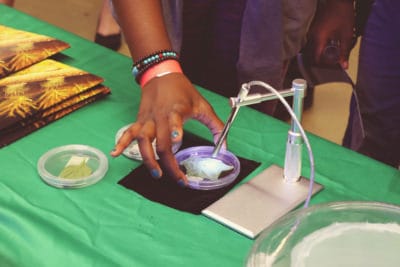This year, I embarked on a new chapter in my teaching career. I changed schools. I taught at my previous school for 20 years, but a wonderful opportunity presented itself to me.
This August, I found myself in a new classroom, on a new campus, with new colleagues. I have moved from a position of established leadership in a school to being the newest faculty member. It occurs to me that I am again working on building leadership roles for myself in my new setting, just like a beginning teacher does.
As I recall pieces of advice I have given beginning teachers over the years, here are some thoughts for beginning teachers and leadership development that I now embrace…again.
Volunteer for a role
While most systems do not assign extra committee/coaching duties in the first years, it is a simple way to become more involved in campus affairs. I was accustomed to doing extra work on campus, so this was not a big stretch for my time. The challenge for me came in finding the right role as a volunteer.
When nothing presented itself, I made my own! I asked my administration if I could lead a day of service during winter break for any faculty who wished to volunteer. I know our school is working to improve community exposure and I thought this would be a good way to interact with some of the local charities in the community. It was a success, with almost 50 percent of the faculty being involved — a simple event with quick turn-around.
The role is not even directly related to my teaching or to the operation of our school, but it is a form of leadership nonetheless. If you can not find a role, volunteer to give the SAT or other test. Ask to sell tickets at a ballgame or volunteer to help with a performing arts event. Find something you enjoy and look for the job.
Make a great first impression
This seems like a common sense one, but I put a lot of thought into all of my actions the first week of school—everything from what I wore, to saying, “Good morning,” to my colleagues. I left home with time to spare so I could get to my room well before class started. I chose my most professional work outfits in order to make a good impression for both my students and the administrators on campus during the day.
I stood in the hall between classes, talking to my students as they came to class. I must admit, I have a hard time learning names, so I worked to learn facts about each of my new colleagues. I could then have conversations with them about their families, their hobbies, or their summer vacation. To some, this may sound like “sucking up” but to me, it is my responsibility to properly introduce myself to the stakeholders at my new school.
Pay it forward
I made a point of making myself useful during the first faculty meeting of the year. During the meeting, a paper ballot was given. After the meeting, I helped collect the ballots and I gathered all extra papers left over from the agenda. None of this was necessary, but I would have appreciated someone doing it for me.
I also volunteered to clean up the lab prep room for my department. Doing this cleared up the room that they did not have time to get to, as well as helped me learn what equipment is at my new school. I believe in paying it forward. It builds trust with colleagues and you become the teacher they can count on. I want my new colleagues to know I am a hard worker and a dependable team member.
Get to know your colleagues
This one is critical for a beginning teacher’s survival as well as for creating a network of support. After the first faculty meeting, I approached a science teacher at a neighboring high school for a possible collaboration. I did not previously know this teacher, but a colleague at my school suggested the introduction. Working with other educators is a process I have always enjoyed, so I jumped at the chance.
After several emails, we decided on a joint project to design a new science lesson. His students will design the models and my students will oversee the building of them during our chemistry unit. Being open to asking for help and looking for these interactions will build a strong network of support when you really need it. Purposefully interact with colleagues and give them an opportunity to get to know you as well.
Invest and engage
I do not believe that any of these small gestures are anything but being a professional and acting as part of a team. Even as I am busy building a new prep, I am taking the time to enjoy getting to know the people I now work with. Beginning teachers should take time to enjoy the school and all the great people in it. It is so easy to get lost in the progress reports, meetings, and lesson planning the first few years, as I am now reminded. However, beginning teachers will have more success if they invest in the culture of school and engage in small opportunities to build relationships.





